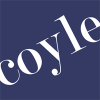My car dealership recently sent me a survey after a service visit for which I had not been paired with the service technician I requested. I had already expressed my disappointment to the technician I was assigned that day, and to the cashier, but I still wrote a comment in the survey provided. Yesterday, I received yet another survey from the dealership about the same experience. For the fourth time, I found myself making the same recommendation to the company. The sad thing is; I still am not sure that the same thing won’t happen again next time.
I realize that not all guests are as open with feedback so why not find more efficient, and less taxing, ways to obtain the same information.
Hotel guests willingly consume the hotel’s product in the ‘store’ over a wide span of time. In the car service scenario, I spent maybe a total of 20 minutes interacting with service staff. At a hotel, that is multiplied exponentially. It creates a very unusual and intimate dynamic because a hotel’s guests are literally living, eating and sleeping amongst its employees. This familiarity is especially fertile for feedback, both direct and indirect.
Instead of doing things traditionally, let’s look at an old idea done a new way. This Forbes article about Bayer AG shows how they encourage innovation. Employees submit their ideas through the company’s intranet portal, basically a virtual suggestion box, and all ideas go directly to a team of innovation experts at corporate.
They then ask five questions:
- Is the idea feasible?
- Is it really a new idea?
- Is there a need in the market?
- What is the benefit for the consumer?
- Does the idea fit with the company’s focus, mission and portfolio?
By answering these questions, Bayer’s innovation team can identify opportunities and concentrate on the ones that have the biggest impact on the consumer, which for our sake, we call a guest.
In hotels, who better to identify innovations than the staff members who engage guests all day long. The PBX operators on the phone, the banquet server overhearing guests complain on a coffee break, the front desk agent checking the guest in and out… The list goes on and on. This feedback is priceless and will never appear quite as clearly in a checkbox on a survey.
Most hotel companies have an intranet. So why not create a simple form and enable any staff member to log on to a computer to provide an idea or tell what they heard? Or even simpler, provide an (800) number any staff member can call anytime, and have a transcription service transcribe the entries once a week or twice a month? The cost would be minimal, yet the structure is there to make it easy; really easy, to pick up a phone and say, “Tim here from Banquets. Guests from XYZ conference are complaining that they wait too long in valet for their cars…I have an idea…” A team of designated staff members could put the Bayer AG five-point measurement to Tim’s call and assess the value of the innovation.
This is not a new idea, of course, but with today’s very low-cost IVR technology, this could be easily achieved by hotel companies large and small, chain or independent. Yes, it is a glorified suggestion box, but some ideas are innovative simply because they are straightforward and easy to use. This is one that may yield better results than the ‘new thing’ everyone else is doing.













